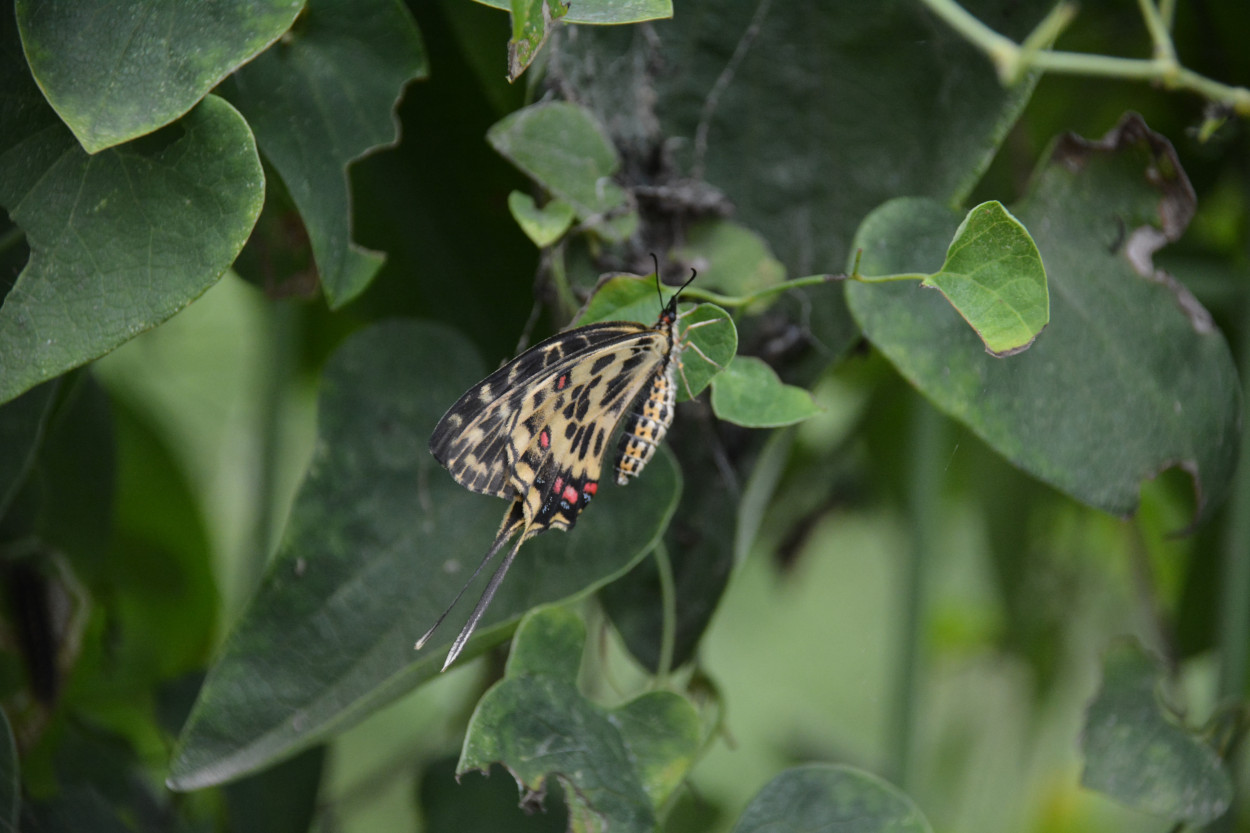From physiological changes in plants to interactions between an endangered butterfly and its host plant
by Youngsung Joo, Schools of Biological Sciences, Seoul National University, Republic of Korea
Climate change is a major threat to biodiversity, and plant-herbivore interactions are a key component of biodiversity. We studied how climate change might affect the way plants and insects interact.
We looked at a plant called Aristolochia contorta and two insects that eat it: Sericinus montela and Spodoptera exigua. We found that when the level of carbon dioxide in the air goes up, plants grow more slowly and are less able to defend themselves from insects.
This hurts the specialist and endanger insect, Sericinus montela, more than the generalist insect, Spodoptera exigua. The generalist insect is able to eat more leaves to make up for the lower nutritional quality of the leaves. Our results show that the effects of climate change on plant-insect interactions are complex and depend on a number of factors.
This is important for conservationists to know, because it means that they need to take a variety of factors into account when trying to protect nature from climate change.


